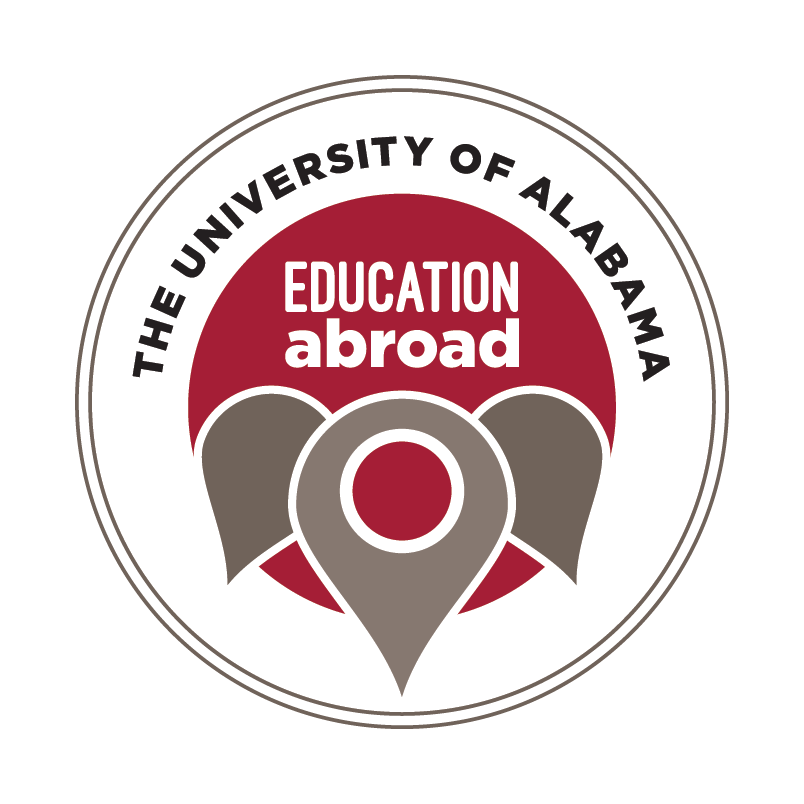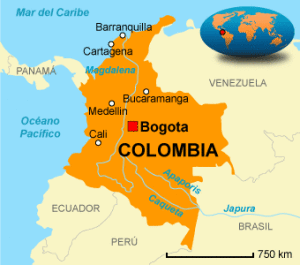Program name: ISA in Barranquilla, Colombia
University Name: Universidad del Norte
I have dreamed about visiting Colombia since my freshman year when I met my first ELI culture and language partner, Carlos. But one never just meets a single Colombian—through Carlos I also met his friends Cesar and Jaime—all of which I remain in contact today (in fact, I am boarding the plane to Bogota tomorrow to visit them before my study abroad term begins!). Through my conversations with Colombian students learning English at the ELI and from the friendships that have developed, my desire to visit this country producing so many kind, caring, life-loving people grew (In fact, the HuffingtonPost recently named Colombia the happiest country on earth!). Yet despite this desire, I never thought I would be able to visit my friends anytime soon. As a pre-med student I was told it is very difficult to fit in all the necessary courses and study abroad as well as the imagined prohibitive costs of traveling and studying in a foreign country. However, as a Spanish major, I recognized how crucial studying in a Spanish-speaking nation would be in attaining a high-level of fluency. After some careful planning on DegreeWorks and discovering that I could apply my tuition scholarship to cover the costs of my study abroad program and plane tickets—the opportunity to study in Colombia became more tangible—although it still came with some challenges.
Firstly, I was rather last-minute in my decision to study abroad, primarily due to class schedule issues, so I am studying abroad during a rather unconventional semester—my last semester of college. Despite the difficulty of saying goodbye to my friends a semester early, I am at peace with my decision because I know how much this experience will challenge me and help me grow as a young adult.
For anyone studying abroad, I recommend to talk to as many people as possible from your host country or from people who have travelled abroad for advice on what to bring and what to leave behind. In my case, I talked to my friends in Colombia as well as a friend who had studied in Colombia during a previous semester. These conversations are very important in identifying what items may be more expensive or harder to find in your destination country. For example, in Colombia bug spray and sunscreen are hard to come by so I was sure to bring a 5 month supply with me. On the other hand, I am not bringing any towels or many toiletry items with me since I can easily buy those in Colombia. A few unconventional items I am bringing besides the obvious (clothes, shoes, camera, passport) are gifts for my friends and homestay family, a first-aid kit, and a power strip for my room.
As I think about waking up at 4:30 AM for my flight tomorrow morning to Bogota, thoughts of my upcoming adventures with old friends and feelings of excitement and anticipation rush through my head. At this point, I honestly am not worried about leaving my friends or family although I will undoubtedly miss them once the “honeymoon” phase of my adventures is over; rather, my concerns at the moment are balancing my classes with travel and social activities and not hanging out too much with the fellow Americans in my program. My main goal is, after all, to become more fluent in Spanish, and I must be vigilant in pushing myself outside my comfort zone to converse with natives. My other goals for my experience are to not shy away from or be overwhelmed by the challenges of studying abroad. Yes, I will not know what is going on all the time in my classes and in conversations. Yes, there will be no AC in my homestay in 90 degree weather. Yes, as a woman I am limited as to where and when I can travel alone. And yes, I may feel frustrated by these circumstances at various points during my stay. But—how incredibly blessed am I to even have the opportunity to have these challenges?! That is, I feel lucky to be able to face these challenges because they will undoubtedly make me a better Spanish-speaker and a more adaptive person.
A second goal for myself is to bring back what I have learned in Colombia to the US. I cannot even count the number of times someone has told me to “Try not to get kidnapped” or “Watch out for the drug lords.” I am saddened by the fact that Colombia’s past history of the cocaine trade and druglords like Pablo Escobar continues to mar its image. The Colombia of today is vastly different from that of the 80s or 90s and part of my goal is to share with my friends and family how far the country has come in eliminating drug-related crime and the power of guerrilla groups like FARC. Although these problems still persist in pockets throughout the nation, Colombia is much safer to travel within than people believe.
I am so excited for the upcoming experiences and challenges I will encounter while studying in the beautiful country of Colombia and I am so thankful for the support of the University of Alabama and The Study Abroad office for their financial support!
¡Pura Vida!

